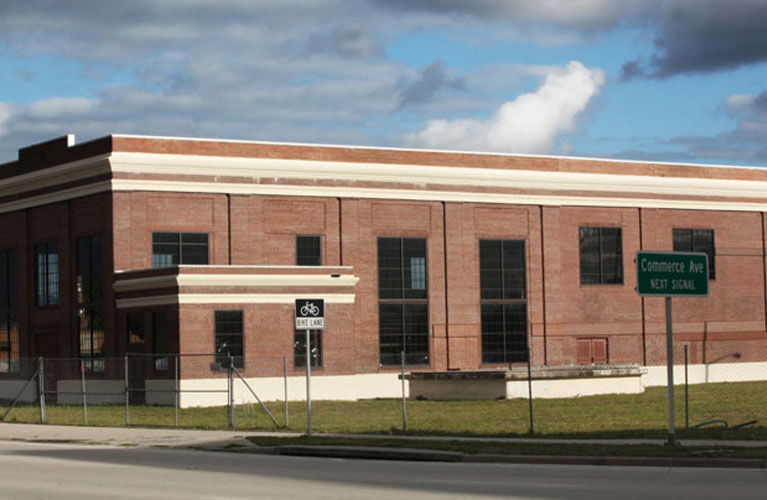
VERO BEACH — The Indian River Cultural Council is rethinking its plan to attempt to acquire the historic downtown diesel plant for an arts center, and instead is considering multiple smaller spaces.
One space currently under consideration has also piqued the interest of the Vero Beach Art Club, and the two entities are in early discussion on just how they might cooperatively make such a center happen.
“We’re just scratching the surface,” says Barbara Hoffman, the Cultural Council’s executive director. “We do not want to rule out the diesel plant. But we’ve been encouraged to have an alternative Plan B.”
“Because of the lawsuit, because of the trains, because of the fact that we might maybe want a larger space, we started looking at alternatives. The more you research, the more you really think through your projects, and you sometimes do reposition as a result.
“What’s been hitting my brain is that the community isn’t really interested in the Cultural Council’s building as much as they are in bringing art to the entire community. Is it through one building for the arts? Or is it though several buildings?”
Hoffman says that even if the group could acquire the diesel plant, moving studios to another building would free up space for different purposes.
Initially, the council’s idea was to build out a second floor in the vast space and rent out small studios to artists.
The new building the two entities are eyeing now, a mid-century two-story structure in the old downtown with an owner-occupied business, is for sale but is not yet listed.
Its owner, a well-known longtime resident, says he has shown the property to both the Art Club and the Cultural Council.
There has also been interest from a Melbourne legal firm; though Hoffman says there are other offers on the building, the owner denied that was the case.
“I’ll be talking to our committee,” says Hoffman. “At our last meeting, we did talk about the building. I did ask all my committee members to take a look at it.”
Both the Art Club and the Cultural Council have asked that the building not be identified for fear that might spur interest from other potential buyers, driving up the price.
The art club sent out an email to its 400 members last week asking if there was interest in studio space. But without knowing the location, there was little response.
The building’s owners would not disclose their asking price, but say it’s “priced to sell.”
They added that any offers are “first come, first served – this is business.”
They said they are not inclined to hold onto the property for the arts organizations, though they did express their hopes that the building “stays within the community.”
The council and the art club would still have to sort out daunting issues, including arriving at a consensus from their respective boards and membership, and of course, figuring out finances.
It was the latter that brought an effort by the Art Club to a standstill last year, after the board announced it intended to build its own clubhouse on the land it leases from the Vero Beach Museum of Art in Riverside Park. A few months later, when donors didn’t materialize to fund the $1 million proposition, it was shelved.
Sherry Wilson, the current president, says the relationship the club has with the museum would not be affected in any way by an acquisition of another building.
The club has used the Museum space for its Art by the Sea juried competition as well to hold open studios and meetings.
A hike in space use fees imposed by the museum several years ago caused a significant rift between the two entities, which share the city lease on the land the Museum of Art sits on.
Any investment in a new building elsewhere “would strictly be for studio space,” Wilson says. “Our office will stay within the museum. The museum is the perfect space for Art by the Sea and the auditorium is the perfect space for our meetings.”
Located just outside the gallery corridor of 14th Street, the building eyed by the two art entities has no dedicated parking, though public parking exists nearby.
The diesel plant, appraised at $500,000, would require another $4 million to renovate, the Cultural Council estimated.



